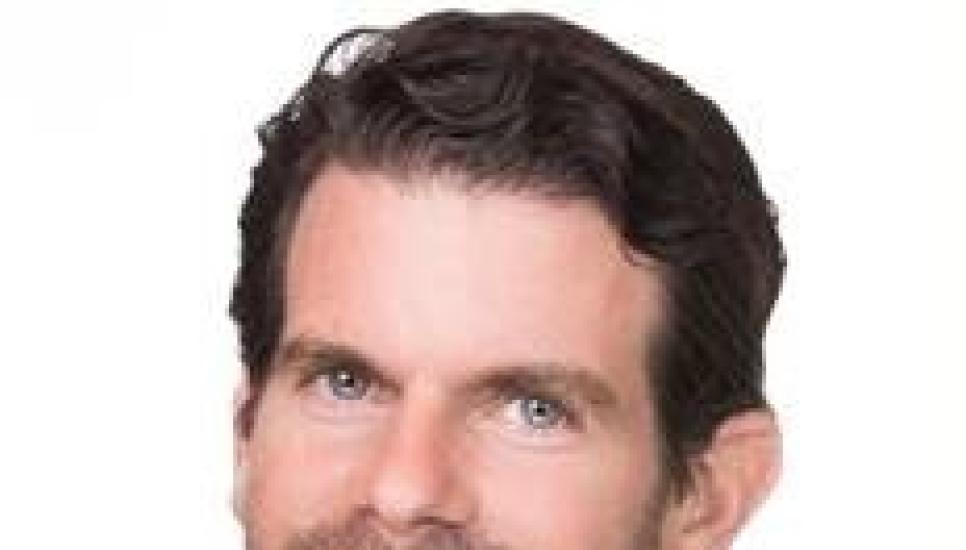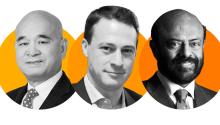How next gens are surfing the wave of impact investment in ocean conservation

Families looking to invest in impact vehicles should ensure the impact element of the fund is genuine and it has the right tools to measure impact, says Max Gottschalk, the founder and chief executive of multifamily investment office Vedra Partners.
Gottschalk (pictured left), who has 25 years of operational and investment experience through Vedra Partners, has partnered with the founders of Blue Marine Foundation (BLUE) to create Ocean 14 Capital—an impact investment vehicle, which raises private capital and deploys it towards a portfolio of growth-stage companies that bring a positive impact on the oceans.
Speaking to CampdenFB, Gottschalk said he expects family offices to increase their allocations in impact investing as the more conscious next generation become wealth holders.
“Next gens are slowly becoming the current generation in control of the capital and they are the ones that are interested in investing in impact and are far more conscious of the issues affecting the planet,” he said.
.jpg)
“Given the same return profile, if you can invest in a company that generate positive impact to the world, then why would you give money to the one that doesn’t?”
Gottschalk said he is seeing a shift as investors actively seek to allocate capital to companies or funds that do good rather than bad. He thinks this is just an evolution of the investment industry.
“We’re seeing publically listed companies starting to report on their impact, on their CO2 emissions and I think this will be just the norm going forward as investors are demanding more transparency to choose and decide what sort of companies they wish to invest in,” he said.
“We’ve seen that sort of development taking place in public markets and now that’s translating into the private market.”
Impact revolution
In this year’s Global Family Office Report 2019, Campden Wealth with UBS found one in four family offices invest in impact with 81% of their investments having matched or out-performed expectations compared to their traditional investments of the same type over the last 12 months.
The report also found 37% of the 360 family offices surveyed expect their impact allocation to total 10% to 24% of their portfolios, while 30% plan to allocate 25% or more within the next five years. The average across all participants is anticipated to be 25%.
Gottschalk said with awareness of climate issues at the forefront of the public’s mind, impact vehicles were a way to combine the objectives outlined in the United Nation’s Sustainable Development Goals with the investment world.
.jpg) “Climate change is here, our oceans and our environment are being abused and there is just not enough money from philanthropy going into this area to fix the problems,” he said.
“Climate change is here, our oceans and our environment are being abused and there is just not enough money from philanthropy going into this area to fix the problems,” he said.
“We have seen over 200 companies with interesting innovations coming out of the ocean economy —technologies that create efficiencies around the fishing industry and reusing plastic waste for example — offering competitive returns and so we decided to create an investment vehicle to bring private capital to invest in these companies.
“Working with the BLUE founders provides a unique platform, combining investment experience and capital with ocean knowledge, helping us source and validate investment opportunities as well as providing strategic advice to help these companies be successful.
“I think in order to have a material impact on the planet large sums of capital need to be invested in these types of companies. Creating investment vehicles to access private capital is the solution.”
Measuring success
To ensure Ocean 14 Capital is able to demonstrate to investors that it affects real change, they have created an impact committee for the sole purpose of defining, measuring and reporting impact, working directly with the investee companies. This committee sits at the heart of its investment process and has a veto on any investment.
.jpg) “There is no standard in impact measurement, a number of tools have been developed, but many are too qualitative, rather than quantitative and therefore hard to accurately measure and report in a way that everyone can understand,” Gottschalk said.
“There is no standard in impact measurement, a number of tools have been developed, but many are too qualitative, rather than quantitative and therefore hard to accurately measure and report in a way that everyone can understand,” Gottschalk said.
“For us, we measure impact in monetary terms so when a company report its impact to us, ‘We’ve been able to reduce the number of fish being taken out of the ocean in terms of ‘x’ amount of tonnes’, or ‘We’ve been able to plant this many trees this year and that’s going to create CO2 reduction of x’, we allocate a monetary value for of these measurements, allowing us to measure its efficiency against the capital invested. We call it the impact ratio.
“For each dollar invested, we derive the impact generated, which gives its impact ratio, which enables us to report to our investors their investment return as well as their impact return.
“We are hoping this way of measuring impact could be used for all impact investments as well as philanthropy.”
Exercising caution
However, with the appetite for impact investing growing and similar vehicles being created, Gottschalk said families should exercise caution when choosing a fund and ensure the funds are genuine in their impact objectives, and that they also use appropriate tools to measure and report on impact.
_0.jpg) One third of those who said they impact invest in The Global Family Office Report 2019 said they believe that impact investments are not established enough to invest in and there is a lack of well-known companies and the investments have a short track record.
One third of those who said they impact invest in The Global Family Office Report 2019 said they believe that impact investments are not established enough to invest in and there is a lack of well-known companies and the investments have a short track record.
“The investor needs to make sure that the impact element of the fund is genuine—there are more funds that are looking to create impact vehicles, but from what I have seen so far, very few have put the impact at the heart of their investment,” Gottschalk said.
“As with all investments, it’s about due diligence—try to understand the impact goals of the fund and to make sure they meet with your objectives too.
“There will clearly be more funds coming out in the future, touching on different environmental factors, different industries and hopefully over time, investors will have the choice to invest in the causes that are close to their heart.”






